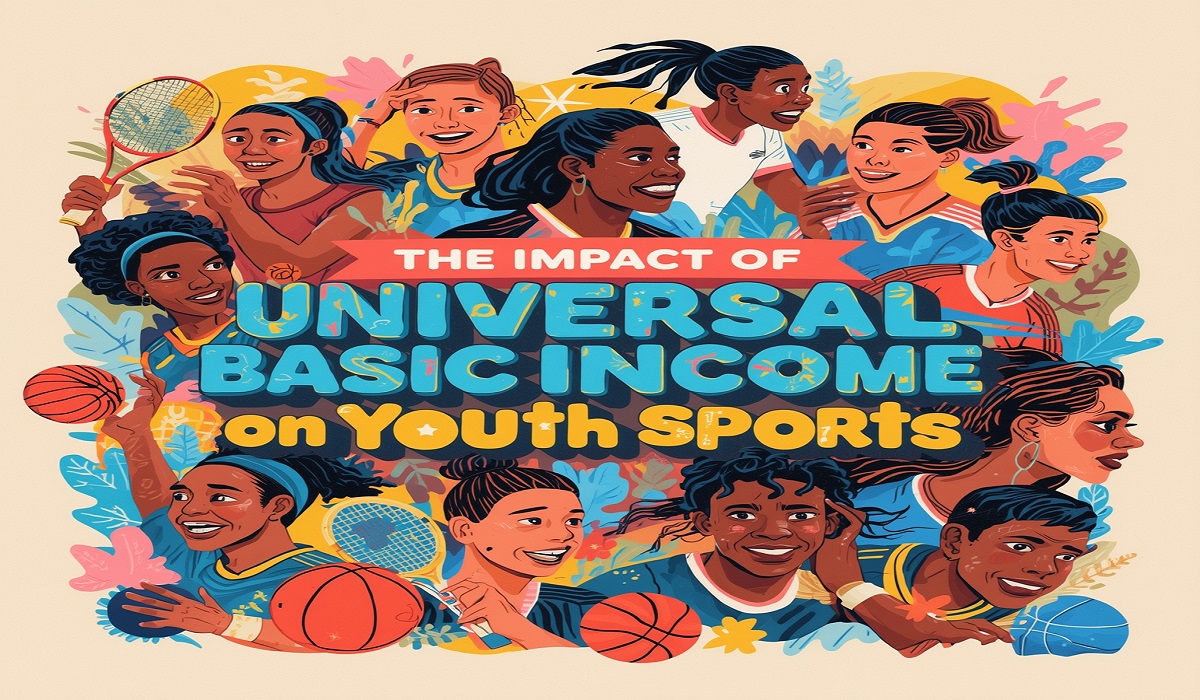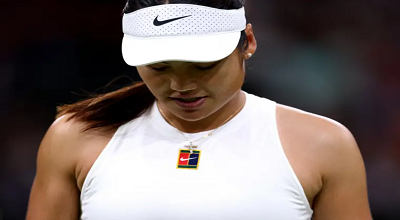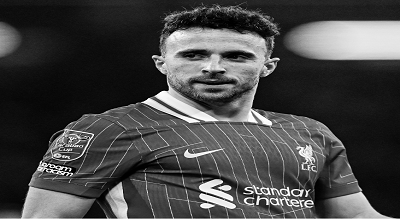Basic Income on Youth Sports
Basic Income on Youth Sports: Imagine a world where every child, no matter their family’s budget, gets a chance to run on a soccer field, learn to swim, or be part of a team. For many families, the high cost of sports keeps this dream out of reach. A new idea called Universal Basic Income, or UBI, is being talked about in cities and countries.
This article looks at a fresh question: What could happen if we connected these two ideas? We will examine the impact of Universal Basic Income on youth sports and what the latest discussions mean for our children’s future.
What is Universal Basic Income? A Simple Explanation?
Universal Basic Income is a plan where every person in a community receives a regular amount of money from the government. This money is given without rules on how to spend it. The goal is to provide a financial foundation for everyone. Think of it as a monthly payment that helps cover basic needs like food, housing, and clothes.
This idea is not about making people rich. It is about making sure no one falls into deep poverty. Some places have tested small versions of UBI. They wanted to see if it helps people feel less stressed and more able to pursue education or better jobs. The results from these tests show us how money can change daily life for families.
When families have this stable financial base, they can think beyond just survival. They can consider things that improve quality of life, such as hobbies and activities for their children. This is where the conversation about the impact of Universal Basic Income on youth sports begins. With extra money, parents might choose to invest in their child’s physical health and social development.
The High Financial Wall Around Youth Sports Today
Playing sports costs a lot of money. This creates a high wall that many families cannot climb. Let’s look at the common expenses that make youth sports so expensive.
- Registration Fees: Simply signing up for a season of soccer or basketball can cost hundreds of dollars.
- Equipment and Gear: This includes items like cleats, gloves, helmets, uniforms, and bats. Good quality gear is important for safety and performance, but it is not cheap.
- Travel Costs: For competitive teams, families often pay for gas, hotels, and meals during out-of-town tournaments.
- Private Coaching: To get better, many kids now need private lessons, which add another large bill.
These costs add up quickly. A family with two or three children might decide they can only afford for one child to play. Sometimes, they cannot afford it at all. This financial wall means many talented and interested kids never get the opportunity. They miss out on the fun and benefits of being on a team. Understanding this problem is the first step in seeing the impact of Universal Basic Income on youth sports.
How a Basic Income Could Change the Game for Young Athletes?
A Universal Basic Income could act as a key, opening a gate in that financial wall. It would not make every family wealthy, but it could provide the specific funds needed for sports. This regular cash payment could change the game for young athletes in several important ways.
First, it would give parents direct power to choose. They would not have to apply for a special scholarship or grant. The money arrives, and they can decide to use some of it for their child’s soccer registration or new sneakers. This freedom of choice is a core part of the UBI idea. It trusts families to know what is best for them.
Second, it could reduce the stress and arguments about money at home. When parents are not worried about how to pay the next bill, they have more mental energy to support their children’s interests. They can say “yes” to joining a team without feeling a heavy financial burden. This positive shift in family dynamics is a significant part of the impact of Universal Basic Income on youth sports. It makes participation a real possibility for millions more children.
More Kids on the Field: Increasing Participation and Diversity
When money is less of a problem, we would likely see many more kids on the field, court, and track. Sports teams would become more diverse, reflecting the true makeup of our communities. Children from all income levels would play together.
This increase in participation is about more than just numbers. It is about fairness and opportunity. Every child deserves the chance to be active and make friends through sports. Right now, that chance is not equal. A Universal Basic Income could help level the playing field, literally and figuratively.
With more kids trying different sports, we might also discover new talent. The next great athlete could be in a neighborhood that cannot afford youth leagues today. By removing the financial barrier, we open up sports to everyone. This expansion is a central hope when discussing the impact of Universal Basic Income on youth sports. It promises a future where teams are filled with children from every background.
Shifting Focus from Profit to Passion in Youth Sports
The youth sports industry has become a big business. Some leagues and tournaments are very expensive because they are run to make a profit. When families have more money through UBI, the culture of youth sports might slowly change.
Parents and communities could start new, local leagues that focus on fun and skill development. They would not need to rely on expensive, travel-heavy programs. The focus could shift from winning at all costs to learning, exercise, and teamwork. The passion for the game could become more important than the profit from it.
This change would be better for children’s mental health. The pressure to perform and justify a large financial investment can be overwhelming for a young person. If sports cost less, kids could play for the joy of it. They could try new sports without their parents worrying about wasting money. This healthier approach is a beautiful potential outcome of the impact of Universal Basic Income on youth sports.
Potential Challenges and Points of Concern
The idea is not perfect. There are valid concerns about using a Universal Basic Income for youth sports. We must consider these challenges to have a full picture.
One concern is that not all families would spend the extra money on sports. They might need to use it for more urgent needs like rent or groceries. This is their right, and it shows that UBI is not a magic fix for youth sports funding. It is a tool that gives families options.
Another point is that if everyone has more money, could sports programs simply raise their prices? This is a possible side effect. Leagues might see that families have a basic income and decide to charge more for the same service. This would defeat the purpose and keep the financial wall high. These concerns remind us that the impact of Universal Basic Income on youth sports requires careful planning and community oversight.
Real-World Examples and the Latest Research
What does the real world tell us? While no large country has a national UBI yet, small-scale experiments give us clues. A study in a city in the United States gave monthly payments to some families. Researchers found that the families used the money for their children’s needs and activities, including sports.
The latest news from these pilot programs shows that financial stability leads to better outcomes for children. They reported less anxiety and more involvement in school and community life. This connection strongly suggests a positive impact of Universal Basic Income on youth sports participation. When families are not in crisis, they invest in their children’s well-being.
Researchers are now starting to ask specific questions about youth activities. They want to measure how much extra money increases sports enrollment. The early data is promising and points toward a future where economics is less of a barrier to play.
The Long-Term Benefits for Society and Health
Investing in youth sports through a mechanism like UBI is not just about the game itself. It is an investment in our future society. Children who play sports often grow into healthier, more engaged adults.
The long-term benefits are clear:
- Better Physical Health: Active kids are less likely to have health problems like obesity and heart disease later in life.
- Improved Mental Well-being: Sports teach resilience, how to handle loss, and how to work with others.
- Stronger Communities: Teams create bonds between children and families from different backgrounds.
By making youth sports accessible to all, we are building a healthier, more united community for tomorrow. The money saved on future healthcare and social programs could be significant. This big-picture thinking shows why the conversation about the impact of Universal Basic Income on youth sports is so important. It is about creating a better future for everyone.
Frequently Asked Questions
1. Would a Universal Basic Income definitely mean more kids play sports?
Not definitely, but it is very likely. While families could choose to spend the money on other needs, evidence from pilot programs shows that parents often use extra funds for their children’s enrichment activities, including sports.
2. How does UBI for youth sports differ from government sports grants?
A government grant is usually specific—it can only be used for sports. UBI is flexible cash. This means a family can use it for sports, or for food if that is a more pressing need. UBI gives families control and dignity to make their own choices.
3. Couldn’t sports programs just get more expensive if families have more money?
This is a real risk. If the supply of sports programs does not increase along with demand, prices could rise. This is why any plan must include support for community-based, affordable leagues to prevent inflation in youth sports costs.
4. What is the most immediate positive effect we might see?
The most immediate effect would be a reduction in the stress and shame felt by children from lower-income families who cannot afford to play. Even if participation grew slowly, the feeling of being left out would begin to fade.
5. Are there any countries already doing this?
No country has a national UBI program specifically for youth sports. However, several local experiments with general UBI, like those in parts of the United States and Finland, have shown positive increases in well-being that could support youth activity participation.
Conclusion
The connection between a Universal Basic Income and youth sports is a powerful idea. It suggests a path toward a fairer world where a child’s athletic talent and interest matter more than their family’s bank account.
The impact of Universal Basic Income on youth sports could be transformative, leading to more inclusive teams, healthier children, and stronger communities. While challenges exist, the potential for positive change makes this a topic worth our attention and thoughtful discussion. The latest research and conversations give us hope for a future where every child has the opportunity to experience the joy of playing the game.






